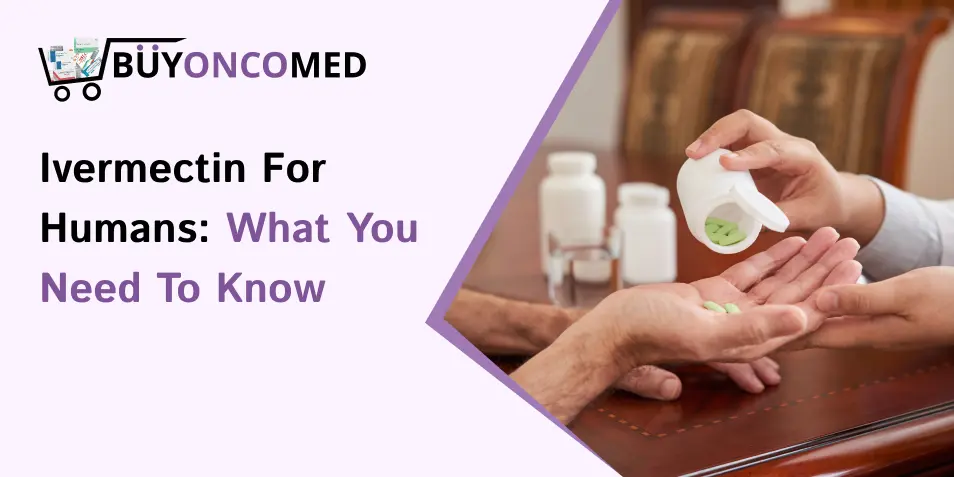
Ivermectin is a renowned drug that is known to provide valuable solutions to various parasitic infestations all over the world. Although its application is mostly known in this field in treating animal health, it has been used in human lives with several applications and life-saving purposes. Have you heard about Ivermectin but are unsure of its applications, safety, and side effects? This article will tell you what you need to know.
What Is Ivermectin And How Does It Work?
Ivermectin- This is an anti-parasitic drug, used to treat parasites that include worms and skin ailments such as scabies. In human form, Ivermectin interferes with the nervous system of the parasites, such that they are unable to reproduce and grow. It is especially useful to treat such diseases as river blindness, strongyloidiasis, and head lice.
➡️ How Does Ivermectin Affect Parasites?
The process uses Ivermectin, which occurs when the medicine attaches to parasite nerve receptors and kills the parasite by paralyzing it. By doing so, they ensure that the parasites do not breed and spread to other parts of the body, which eradicates the infection
Approved Uses Of Ivermectin For Humans
➡️ Onchocerciasis (River Blindness)
The most widely prescribed application of ivermectin is the treatment of onchocerciasis, or worms. It causes river blindness in numerous developing nations, which can lead to itching and alteration of the skin and even blindness. Ivermectin paralyzes and kills the larvae of the parasite of this debilitating condition.
➡️ Strongyloidiasis
It is also commonly used to treat strongyloidiasis, also known as Strongyloides stercoralis. It affects mainly the intestines and may cause a lot of abdominal pain, diarrhea, and long-term health challenges associated with it if it goes untreated.
➡️ Rosacea And Head Lice Cure
Topical Soolantra contains ivermectin to treat a skin disease called rosacea, which makes skin appear red and develop pimples. Another popular product, Sklice, that contains Ivermectin, is used to treat head lice in young children, a great solution to a head lice infestation.
How Ivermectin Is Taken
➡️ Dosage: What You Should Know
Depending on which condition is being treated, the standard dose of Ivermectin varies. Onchocerciasis normally requires just a single dose, although other diseases such as strongyloidiasis may require repeated administration. Your healthcare provider will tell you the amount that will apply to your body weight.
To address issues such as head lice or rosacea, Iverpara 12 Mg can be used, a special brand meant to be used by people who guarantee a safe and effective dosage of the product.
➡️ Pediatric And Geriatric Doses
Patients in the geriatric age groups or pediatric patient groups may require dosage adjustments. Children are usually prescribed at a lower dosage, whereas an elderly patient may need close attention to the possible side effects of the medication. Healthcare providers should strongly consider Ivermectin use before administering it to these groups to make sure of the right dosage.
Side Effects
➡️ Common Side Effects
Most people tolerate Ivermectin well, but like any medication, it may cause side effects. The most common ones include:
- Dizziness
- Nausea
- Fatigue
- Skin rashes
These side effects are generally mild and subside once the body adjusts to the medication.
➡️ Severe Reactions
While rare, severe side effects can occur, including:
- Severe allergic reactions such as swelling, itching, or difficulty breathing.
- Neurological effects, including confusion, seizures, or muscle weakness.
If you experience any of these symptoms, it’s critical to seek immediate medical attention.
➡️ Drug Interactions And Contraindications
Ivermectin 12 mg may react with other medicines that work with sedatives, benzodiazepines, and some antifungal agents. It is necessary to mention that you should talk to your doctor about your current medications to prevent harmful interactions.
The COVID-19 Controversy: Does Ivermectin Work for COVID-19?
➡️ The Debate Over Ivermectin For COVID-19
During the COVID-19 pandemic, it has received a considerable amount of attention as a possible treatment for the disease. But the FDA and WHO, among other health authorities, have clarified that Ivermectin 6 mg should not be used against COVID-19 since there is no substantial scientific evidence that It as a factor can be a safe and effective treatment of COVID-19. You should not use it other than for approved FDA-labeled purposes unless under the expert advice of health care professionals.
Alternatives To Ivermectin: Other Treatment Options

➡️ Comparing Anti-Parasitic Medications
Despite Ivermectin being one of the best combatants of parasitic diseases, alternative treatment is also possible; it all depends on the sickness:
- Albendazole: Used for various worm infections.
- Mebendazole: Commonly prescribed for intestinal worms.
- Praziquantel: Effective for schistosomiasis and tapeworm infections.
Discussing these alternatives with a healthcare provider is essential for choosing the right treatment.
➡️ Natural And Over-The-Counter Alternatives
Some patients will prefer using natural treatments for parasitic infections. Still, although certain herbal interventions are asserted to kill parasites, they have not yet been studied in clinical trials. You should remember to see a medical professional before attempting alternative treatment in case you suspect a parasitic infection.
Frequently Asked Questions
1. Can Ivermectin Be Used For Treating COVID-19?
No. Though it has been tested to help in the treatment of COVID-19, the FDA and CDC do not recommend the drug for the treatment of the said disease. It is best to heed the advice of your medical practitioner in the context of COVID-19 cures.
2. Is Iverpara 12 Mg Available Over-the-Counter?
Iverpara 12 Mg is not an OTC drug. You must talk to a doctor to know whether It is suitable for your condition. It is not sold over-the-counter and needs a prescription.
3. What Should I Do If I Miss a Dose Of Ivermectin?
In case you forget to take a dose of Ivermectin, take it when you remember. When it is close to your second dose, skip your missed dose and take your second dose when it is due. Do not take two doses at a time to compensate for a missed dosage
4. Are There Any Dietary Restrictions While Taking It?
Normally, there are no dietary requirements for using Ivermectin. Nevertheless, be sure to consult the advice of your healthcare professional at all times, because certain conditions may have particular considerations.
Conclusion
It is an effective drug that has shown good results in therapeutic applications of various kinds of parasitic infections. It is effective in combating onchocerciasis, strongyloidiasis, and even head lice, and this makes it a life-saving drug. Yet, it must be employed responsibly and with the help of a medical expert in order to avert any possible side effects. Take a prescribed dosage, and when you have any concerns, ask your healthcare expert.

